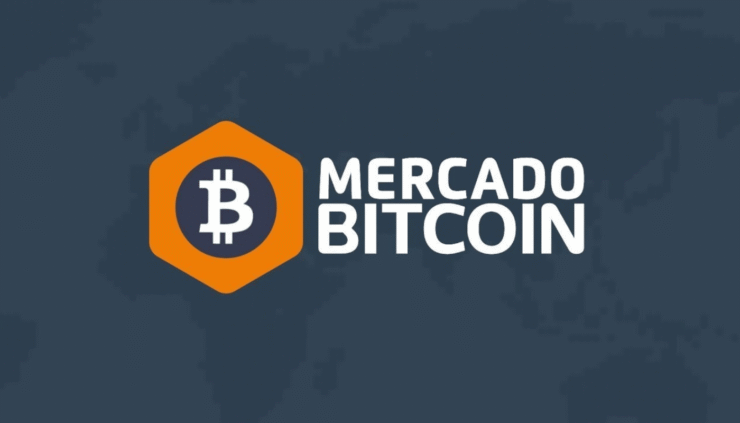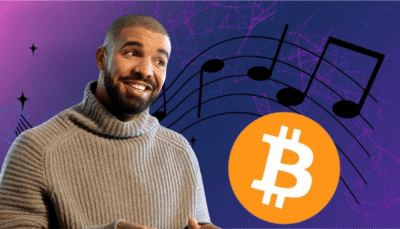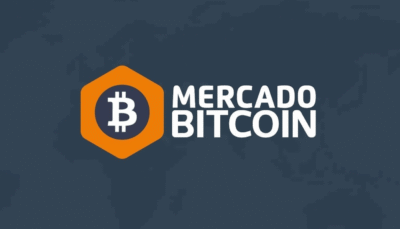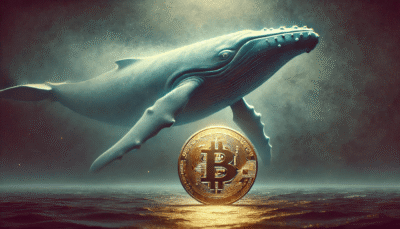Mercado Bitcoin, the leading crypto exchange in Latin America, announced Friday it will tokenize $200 million worth of real-world assets (RWAs) on the XRP Ledger (XRPL), underscoring the sector’s rapid shift toward onchain finance.
According to a statement from Ripple, which developed the XRPL, the assets will include tokenized versions of fixed-income securities and equity instruments. The move positions Mercado Bitcoin among the region’s most ambitious players in bringing traditional financial products onto blockchain rails.
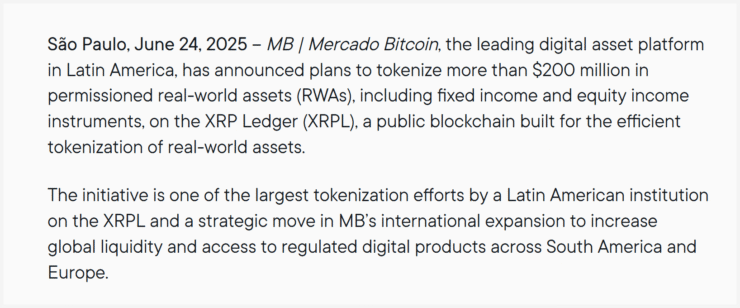
A recent report published by Ripple and the Boston Consulting Group forecasted the tokenized RWA market could expand to a staggering $19 trillion market capitalization by 2033, as demand grows for more transparent and accessible investment vehicles.
The announcement arrives as global asset managers and crypto firms intensify lobbying efforts to establish regulatory clarity in the United States. Industry advocates argue clearer frameworks will be essential for tokenized equities, bonds, and funds to move from niche products to mainstream portfolio staples.
Tokenization Trend Accelerates Despite Regulatory Uncertainty
Mercado Bitcoin’s initiative is part of a broader wave of crypto and fintech companies racing to digitize traditional financial assets—even as regulators grapple with how to supervise these instruments.
On the same day as the Mercado Bitcoin deal, decentralized finance protocol Ondo Finance revealed it had acquired Oasis Pro, an early U.S.-regulated alternative trading system authorized to settle digital securities in fiat and stablecoins. The acquisition is designed to boost Ondo’s capacity to offer tokenized products to institutional investors.
“Oasis Pro was one of the first platforms with regulatory approval to support settlement in both fiat and stablecoin,” Ondo wrote in its announcement.
Meanwhile, Centrifuge, a blockchain company focused on bridging RWAs with decentralized finance, disclosed plans to tokenize the S&P 500 index. The project would create onchain representations of America’s most prominent publicly traded companies, opening new avenues for fractional ownership and programmable exposure to blue-chip equities.
While these moves demonstrate growing industry confidence, they also highlight the tension between innovation and regulatory ambiguity. Without clear guidelines, tokenized assets still inhabit a legal grey area that can confuse investors and complicate compliance.
BlackRock Pushes for SEC Action as Experts Warn of Risks
Calls for regulatory clarity are now coming from the largest institutions in global finance. In January, BlackRock CEO Larry Fink urged the U.S. Securities and Exchange Commission to approve frameworks that would permit large-scale tokenization of stocks and bonds. With BlackRock overseeing $11.4 trillion in assets, such an endorsement signals how mainstream the concept has become.
Yet even as enthusiasm grows, experts caution that tokenized versions of equities don’t always replicate the rights and protections that accompany traditional securities.
“There is no direct claim on company assets, no voting rights, and no access to internal financial information,” warned John Murillo, chief business officer at fintech firm B2BROKER, in an email to reporters.
He added that investors should carefully study the fine print of each offering to understand whether tokenized RWAs include entitlements like dividends or profit-sharing, and to evaluate any smart contract vulnerabilities that could impact performance or redemption.
As firms like Mercado Bitcoin, Ondo Finance, and Centrifuge continue to roll out new products, regulators face mounting pressure to define the legal contours of tokenized finance—before the market outpaces the rules meant to govern it.
Quick Facts
- Mercado Bitcoin will tokenize $200 million in assets on the XRP Ledger.
- Global tokenized RWA market could reach $19 trillion by 2033.
- BlackRock and other institutions are pressing regulators for clear frameworks to legitimize tokenized securities.
